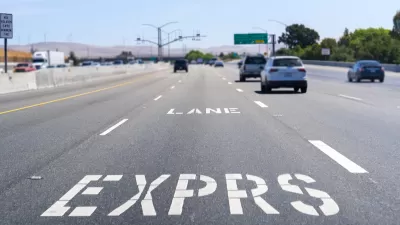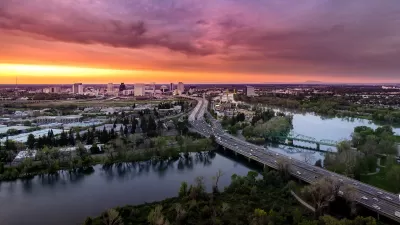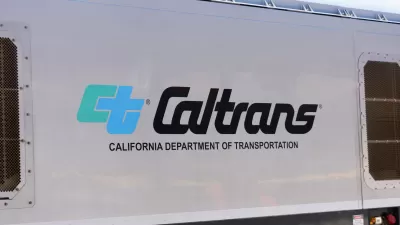The Bay Area's transportation agency, the Metropolitan Transportation Commission, approved a comprehensive plan for regional High Occupancy Toll lanes, mostly from conversions of existing and already-planned carpool lanes, totaling almost 800 miles.
"The region-wide project along segments of 12 highways would cost an estimated $3.7 billion to build. Officials anticipate the system will generate more than $6 billion in 25 years - enough money to cover the project's expenses and produce additional cash for other roadway and transit improvements."
"The toll roads would be incorporated into existing carpool lanes, which now comprise about 350 miles of freeway, and the approximately 140 miles of additional carpool lanes now under construction. The plan calls for building another 300 or so miles of the lanes to fill in the gaps and create a seamless network."
"Officials anticipate that solo drivers initially would pay 20 to 60 cents per mile in the early years of the program, and perhaps up to $1 per mile in 2030. Carpools, vanpools, mass transit and motorcyclists would continue to use the priority lanes for free.
Under the scheme, people driving alone would enter and exit the express lanes at designated locations and be tracked via a network of electronic readers erected along the freeways that link to a FasTrak transponder in the vehicles."
Thanks to ABAG-MTC Library
FULL STORY: Bay Area officials approve toll-lane network

Alabama: Trump Terminates Settlements for Black Communities Harmed By Raw Sewage
Trump deemed the landmark civil rights agreement “illegal DEI and environmental justice policy.”

Planetizen Federal Action Tracker
A weekly monitor of how Trump’s orders and actions are impacting planners and planning in America.

The 120 Year Old Tiny Home Villages That Sheltered San Francisco’s Earthquake Refugees
More than a century ago, San Francisco mobilized to house thousands of residents displaced by the 1906 earthquake. Could their strategy offer a model for the present?

LA’s Tree Emergency Goes Beyond Vandalism
After a vandal destroyed dozens of downtown LA trees, Mayor Karen Bass vowed to replace them. Days later, she slashed the city’s tree budget.

Sacramento Leads Nation With Bus-Mounted Bike Lane Enforcement Cameras
The city is the first to use its bus-mounted traffic enforcement system to cite drivers who park or drive in bike lanes.

Seattle Voters Approve Social Housing Referendum
Voters approved a corporate tax to fund the city’s housing authority despite an opposition campaign funded by Amazon and Microsoft.
Urban Design for Planners 1: Software Tools
This six-course series explores essential urban design concepts using open source software and equips planners with the tools they need to participate fully in the urban design process.
Planning for Universal Design
Learn the tools for implementing Universal Design in planning regulations.
Ada County Highway District
Clanton & Associates, Inc.
Jessamine County Fiscal Court
Institute for Housing and Urban Development Studies (IHS)
City of Grandview
Harvard GSD Executive Education
Toledo-Lucas County Plan Commissions
Salt Lake City
NYU Wagner Graduate School of Public Service





























